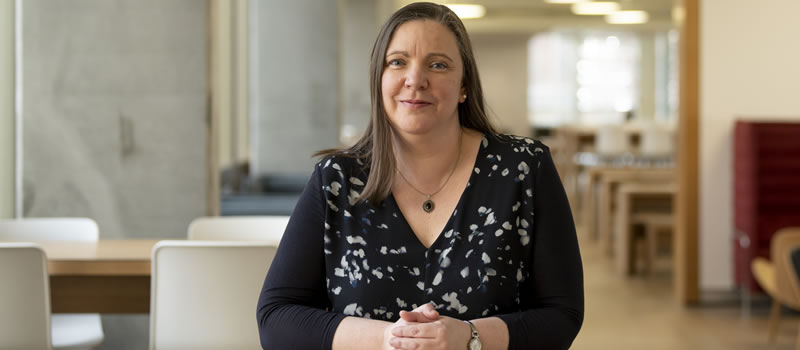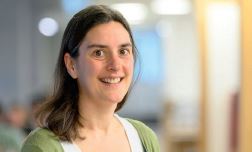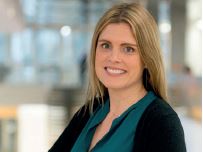David Beauchamp - "To what extent is the language of this test question readable?"
Tuesday 10th September 2019, 2:49pm, Room: 3.209

Report authors: David Beauchamp, Research Assistant, and Filio Constantinou, Senior Research Officer, Cambridge Assessment
For assessment to be useful, results must accurately reflect candidate ability. Excessively complex grammar and difficult vocabulary may prevent students from displaying their true knowledge and skills. This is particularly true for students who are not native speakers of the target language.
In an attempt to address this issue, this study explored ways of investigating the complexity of test questions inform future test design, at the level of both vocabulary (lexical complexity) and grammar (syntactic complexity).
Matthew Carroll - The use of longitudinal survey data in education research
Wednesday 11th September 2019, 10:00am, Room: 6.206

Report author: Matthew Carroll, Research Officer, Cambridge Assessment
Longitudinal cohort studies collect data from the same participants at multiple ages, producing valuable datasets. However, it is not clear how such datasets are used within education research; understanding this could support effective data use and inform future research.
In this study, a literature review was carried out to examine how datasets from two major longitudinal cohort studies have been used. Sixty-one education-related publications were reviewed to identify the questions asked and methods employed.
The review highlights the value of longitudinal studies to education research. It shows how the datasets are used to study a broader range of questions than is possible with other data sources, but that there is room to further utilise the rich data.
Carmen Vidal Rodeiro - How does A-level subject choice and students’ background characteristics relate to Higher Education participation?
Wednesday 11th September 2019, 12:40pm, Room 3.213

Report author: Carmen Vidal Rodeiro, Senior Research Officer, Cambridge Assessment
This research aimed to provide a better understanding of how useful A-level subjects are for gaining admission to Higher Education.
Policy makers and the general public have become increasingly concerned about the extent to which different qualifications prepare young people for Higher Education. Despite policy efforts and claims of equivalence, progression might differ depending on the qualifications or subjects studied, even after controlling for background characteristics.
Choosing A-levels is not straightforward as some subjects are seen as providing better grounding for Higher Education than others. Furthermore, many courses require particular subjects, and there is a disparity in the attitudes of admissions staff towards certain A-levels.
The results from the research show that, although choice of subjects is crucial, background characteristics such as gender and school type are still part of the explanation for different levels of participation in higher education.
Furthermore, while the access gap between students from different backgrounds has narrowed in recent years, the gap in the most selective institutions remains.
Emma Walland - Teacher decision-making on post-16 provision, in response to reform
Wednesday 11th September 2019, 4.00 pm. Room: 3.205

Report authors: Emma Walland, Research Assistant, Cambridge Assessment and Ellie Darlington, Assessment Manager, Cambridge English
This qualitative study, involving 11 interviews with senior teachers, explored the impact of the recent decoupling of AS and A Level qualifications. We explored how teachers responded to this reform by analysing their decision-making processes for post-16 provision.
Findings showed that teachers had to navigate competing demands in response to the reform. Their decisions were bounded by factors such as resources, belief systems, and the availability of information. Our research shows how the reform was ‘refracted through each school context’ (Goodson, 2001, p.49), leading to different responses.
Nicky Rushton - Teachers' use of and views about enquiry-based learning in the new 9-1 GCSE Geography specifications
Wednesday 11th September 2019, 4.30pm. Room: 3.205

Report authors: Nicky Rushton, Framework Developer, Cambridge Maths and Tori Coleman, Research Officer, Cambridge Assessment
Enquiry-based learning (EBL) has been part of Geography teaching for many years. There is a significant research literature associated with it and it has been included in all GCSE criteria since the early 1990s.
Previous studies have found that EBL improved academic performance, analytical abilities, critical thinking skills, and process skills, and that students following enquiry-led courses had a higher degree of reflection and a better understanding of the course content.
The newly-reformed GCSE Geography specifications are required to include enquiry tasks, but only the Geography B specifications offered by Edexcel and OCR refer to EBL. As this was the main difference between the GCSE specifications, this study investigated teachers’ attitudes towards EBL.
Findings showed that teachers recognised some of the advantages of EBL, but that difficulties in covering course content restricted their use of EBL in their teaching.
Sinéad Fitzsimons - Considering the impact of International schooling on (Inter)National Identities
Thursday 12th September 2019, 9.30am. Room: 3.205

Report author: Sinéad Fitzsimons, Research Officer, Cambridge Assessment
The debates surrounding national and international identity are becoming increasingly prevalent with the rise of nationalist and populist rhetoric in politics.
A recurring theme within this debate is the influence of formal education on how young people view their sense of national and international identities.
Today, it is relevant to consider how schooling influences the national and international identities of increasingly globalised classrooms. Since the boundaries of nation states are being undeniably eroded into a space of flows where people and goods move freely, it is no longer enough for schools to promote regional and mono-national forms of citizenship.
However a tension exists between the extent to which time and resources should be given to celebrating and supporting student diversity and the extent to which the focus should be on ‘assimilating’ young people into a united and mono-cultural society.
This study found that attending an International School influenced students in a variety of ways. Some students strengthened their sense of international identity while others strengthened their national affiliation.
There are several implications of this study for school policies. Most importantly, it calls for the influence of the curriculum and school policies in reinforcing Anglo-Western power and privilege to be further investigated, and more effort and resources to be used to empower and celebrate non-Western and international identities represented in the classroom.